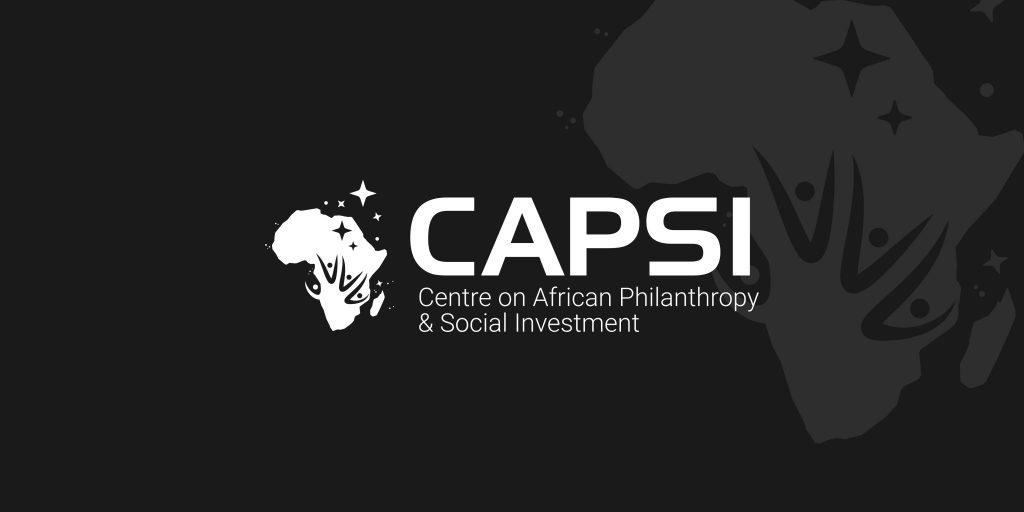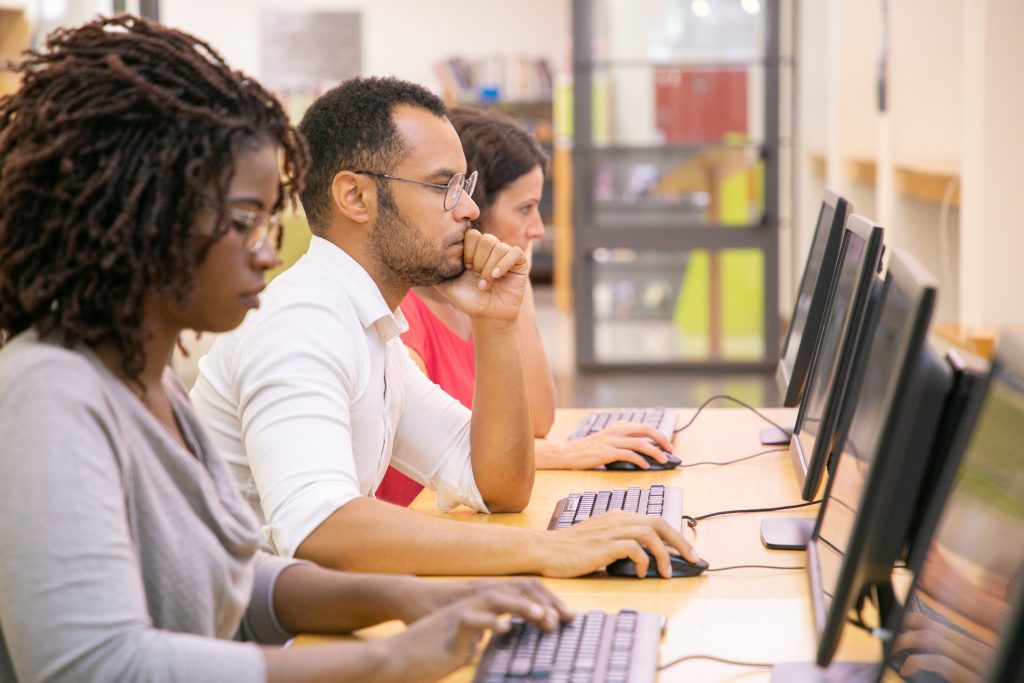The Centre on African Philanthropy and Social Investment (CAPSI) is a leading research institution on African philanthropy, with a mission to advance knowledge, foster innovation, and catalyse transformative change in the sector. Through our research, education, and engagement programs, we aim to promote effective and sustainable philanthropic practices in Africa, and to build a vibrant and inclusive philanthropic ecosystem that can contribute to social and environmental justice.
The International Review of Philanthropy and Social Investment (IRPSI) is the flagship research journal and has been publishing cutting-edge research on philanthropy and social investment in Africa since 2020. The journal provides a platform for critical analysis and scholarly discourse on a wide range of issues related to African philanthropy, including governance, transparency, impact, and innovation. Over the last few years, the IRPSI has published numerous papers that have contributed to a better understanding of the complexities and nuances of philanthropy in Africa, and that have provided actionable insights for practitioners and policymakers.
Despite the progress made, however, there is still much to be explored in African philanthropy, particularly given the rapidly changing landscape of philanthropy in Africa and the need for new approaches to addressing emerging social and environmental challenges. As such, we are inviting scholars and researchers with expertise in African philanthropy to submit proposals for papers that address one or more of the following topics:
- South-South philanthropy: Examining the dynamics and trends of philanthropy within Africa and between African countries, and the role of South-South philanthropy in promoting development and social change in Africa.
- Power dynamics and philanthropy: Investigating the power dynamics that shape philanthropy in Africa, including issues of localization, partnership, and accountability, and identifying innovative ways to rebalance power relations.
- Technology and philanthropy in Africa: Exploring the potential of technology to enhance the effectiveness and efficiency of philanthropy in Africa and addressing the ethical and social implications of technology adoption in philanthropy.
- Emerging giving models in African philanthropy: Investigating the diversity of giving models and practices in African philanthropy, including impact investing, venture philanthropy, and social entrepreneurship, and their potential to drive transformative change.
- Philanthropy and youth empowerment in Africa: Examining the role of philanthropy in promoting youth empowerment and fulfilling work opportunities, and the potential of digitization and new technologies to drive positive social and economic outcomes for young people.
- Climate justice and philanthropy in Africa: Exploring the role of philanthropy in promoting climate action and resilience in Africa and addressing the disproportionate impacts of climate change on marginalized communities.
- Gender and philanthropy in Africa: Examining the gendered dimensions of philanthropy in Africa, including the role of women as donors, recipients, and intermediaries, and the impact of philanthropy on gender equality and empowerment.
- Social innovation and philanthropy in Africa: Investigating the potential of social innovation to drive transformative change in Africa, and the role of philanthropy in supporting and scaling social innovation initiatives.
- Philanthropy and health in Africa: Examining the intersection between philanthropy and health in Africa, including the role of philanthropy in supporting healthcare systems, addressing public health challenges, and promoting health equity.
- Philanthropy and education in Africa: Exploring the potential of philanthropy to promote equitable and quality education in Africa, and addressing the challenges of access, quality, and relevance in education.
- Impact measurement and evaluation in African philanthropy: Examining the challenges and opportunities of measuring and evaluating the impact of philanthropic interventions in Africa, and identifying innovative approaches to impact assessment.
- Philanthropy and the arts in Africa: Investigating the role of philanthropy in promoting and sustaining the arts in Africa, and the potential of the arts to contribute to social and cultural change.
In conclusion, IRPSI is pleased to announce a call for proposals for a special issue on various research topics and nuances on African philanthropy. We invite scholars and practitioners to submit proposals that address critical issues related to the changing landscape of philanthropy in general, south-south relations, localisation, power dynamics, technology, new and emerging giving models, patterns emerging from the pandemic, historical perspectives, and youth empowerment. Other relevant and cutting-edge topics are also welcome.
The special issue editor(s) must commit to producing the research in collaboration with the authors by December 2023, and to adhering to the highest standards of academic rigour and ethical conduct. All submissions will be subject to a rigorous peer review process, and the special issue will be published in the IRPSI in 2024. The special issue editor will work closely with the authors to ensure the production of high-quality papers that will significantly contribute to the advancement of knowledge and practice in African philanthropy. We firmly believe that this special issue will make a substantial contribution to the field, and we eagerly await your proposals to help shape this exciting initiative.
Interested authors should submit a brief proposal by Friday, 30 June, 2023, accompanied by a brief bio and a list of relevant publications to xolani.dlamini@wits.ac.za. Selected proposals will be notified by Monday, 31 July, 2023, and full papers will be due by Thursday, 30 November, 2023. We are confident that this special issue will make a significant contribution to the advancement of knowledge and practice in African philanthropy, and we look forward to receiving your proposals to help shape this exciting initiative.





